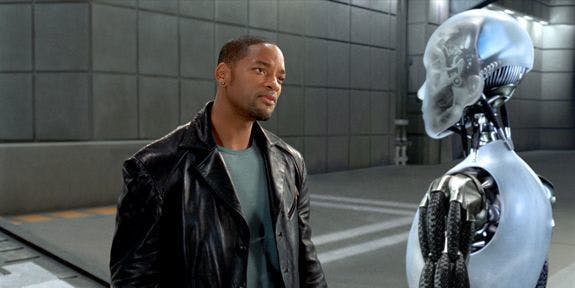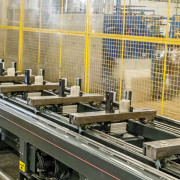AI & Recruitment: The Future is Bright, not Bleak
Artificial Intelligence, or AI, is the name commonly given to technology and machines that are able to emulate human behaviour and act independently to perform ‘human’ functions. Many industries internationally are currently undergoing change as AI begins to see widespread adoption in the business world. How will recruitment be impacted? What is being said online on the topic and are any of the concerns actually valid? Plug yourself into this week’s blog post and let’s talk about it.
AI & Recruitment: The Social Media Echo Chamber
Lately there’s been a lot of chatter on LinkedIn that seems to be reverberating between some of the opinion writers and recruitment influencers in the industry. These characters like to speculate on the future of the industry and what changes we can expect to see in the next 5/10/20 years and so on. At the center of a lot of this discussion is two words: Artificial Intelligence (or AI for short). I worry that the conversation surrounding AI and recruitment has shifted from “How will artificial intelligence aid the recruitment industry” to “How long is until AI renders recruiters redundant?”
The latter question appears to be a knee-jerk reaction, possibly from those who are intimidated by modern technology or don’t fully understand its capabilities and limitations.
Of all the discussion on this topic in recent time, international recruitment guru Greg Savage perhaps summarized it best when he said:
In other words, AI will not “take over” completely. Nor will it put recruiters “out of business”. Instead of being afraid of the future and how jobs will change, the real challenge facing recruitment consultancies in this modern era is to try to ‘make way’ for technology such as AI. This means understanding what aspects of their jobs are subject to change in the next few years, and then making way for that change.
The Changes AI might bring to the Recruitment Industry
This is a really thought-provoking question that is being asked of all industries right now. In fact, universities spend entire lessons on this in e-business classes at Masters level (I should know!). Typical industries that lecturers like to focus on include health, education and government (it won’t be long until we stop needing human volunteers at voting locations!). However, Universities don’t tend to discuss recruitment much, which is a shame because it’s an industry that stands to gain a lot from the adoption of AI.
What I’m about to propose might explain why some of the online chatter has almost taken the shape of scaremongering about the future of recruiter’s jobs – speaking from a purely technical standpoint, AI could perform almost all of the functions of a recruiter’s job. That does NOT mean that AI could do them well at all! In fact, I’d venture an educated guess that any recruitment consultancy that is too quick to shoehorn AI into the majority of their processes will find it loses them business. The sentiment of ‘just because you can, doesn’t mean that you should’ is especially relevant here.
Let’s get hypothetical. For example, we COULD all vacate our offices and let AI automatically search worldwide databases for candidate CVs. The computer COULD search for these candidates based on a set of search parameters fed to it for each job. The computer COULD then also identify the email addresses/phone numbers in that CV (even our currently utilised technology does this) and then automatically contact those candidates and request further information. It COULD use specific guidelines to narrow down a shortlist, send that shortlist to a client and moderate the contact between the two parties. It COULD even take references and send transcribed versions to clients.
But it all sounds a bit cold, doesn’t it?
AI has the potential to streamline processes that are currently long-winded, repetitive or monotonous. For now, this is where we should be looking to implement AI technology. As Greg Savage says – outline the tasks that machines simply cannot perform as well as we can, and be gradually prepared to hand the others off to AI. In terms of the latter, we’re talking about tasks such as updating databases with candidate information – something that this article posits that recruiters are spend far too much time on. It could also streamline the whole system around taking references for candidates, freeing up time to use elsewhere.
What AI realistically can’t replace
The key to all of this will be to balance how much of the human element and how much of the technology element we implement in the day-to-day recruitment process. Other blog posts have postulated that the entire candidate search process should be conducted by AI. But what about when you’re a recruiter that has a long-standing relationship with a client and you know what their business is like? There are nuanced characteristics of some business environments that AI simply will not be able to detect and adjust for – and this is where it can falter.
I’ll leave you with something anecdotal that was co-incidentally the inspiration for this blog post. I was leaving the supermarket last night and was making my way to the self-service area like I normally do. The line wasn’t too long but I was tired from a busy day at work and decided to go to the express lane instead. The girl at the counter that served me was chatty, and we began talking about halloween, the festive costumes and finally our weekends. It was a wholesome conversation, and a welcome one given that I’d been looking at a screen in silence for most of the day. I left the store in good spirits.
It’s the reciprocal ‘warmth’ of engaging in conversation with a human that can transform a B2C interaction from a mere transaction into a positive experience. Its these interpersonal experiences that encourage customers to make repeat purchases, or encourage candidates to engage with a recruitment service. That’s where recruiters need to focus for the foreseeable future – treat your candidates and clients well and cultivate those relationships. When AI becomes mainstream at the small-medium enterprise level, those interpersonal skills will be the most essential tool in your arsenal.
Article by Dario Luca, Marketing Coordinator



















Leave a Reply
Want to join the discussion?Feel free to contribute!